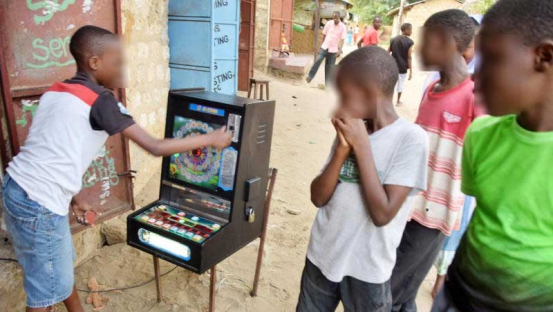×
The Standard e-Paper
Kenya’s Boldest Voice

A brawl breaks out between two schoolboys in a narrow dusty alley in Mikanjuni slum, Mtwapa, along the Mombasa-Malindi road. They are fighting over an unpaid Sh20 debt.
One boy loaned the other money to place a bet in one of the many betting machines in the area, with the understanding that he would pay back with an additional Sh10 as interest. He loses and they fight.